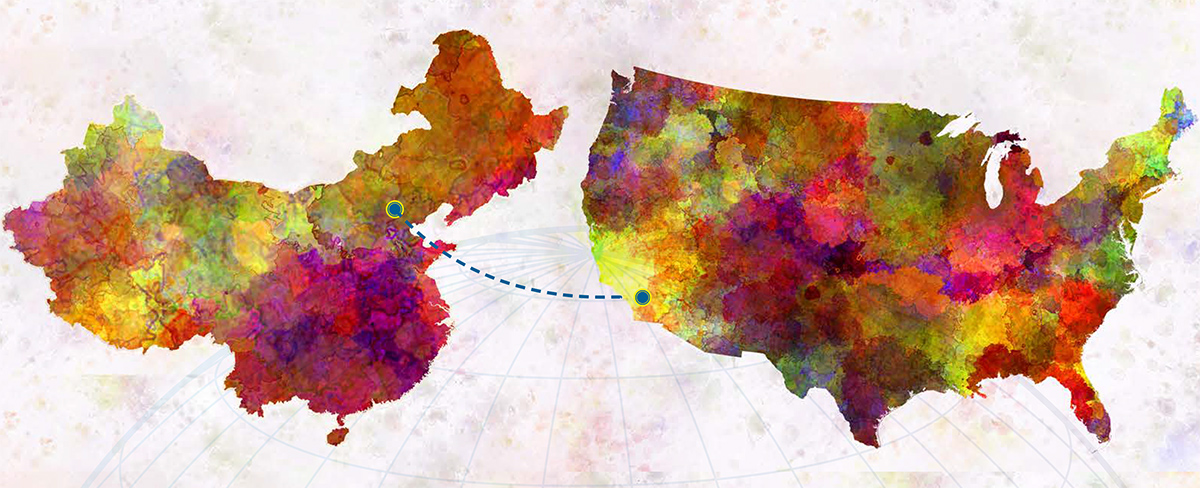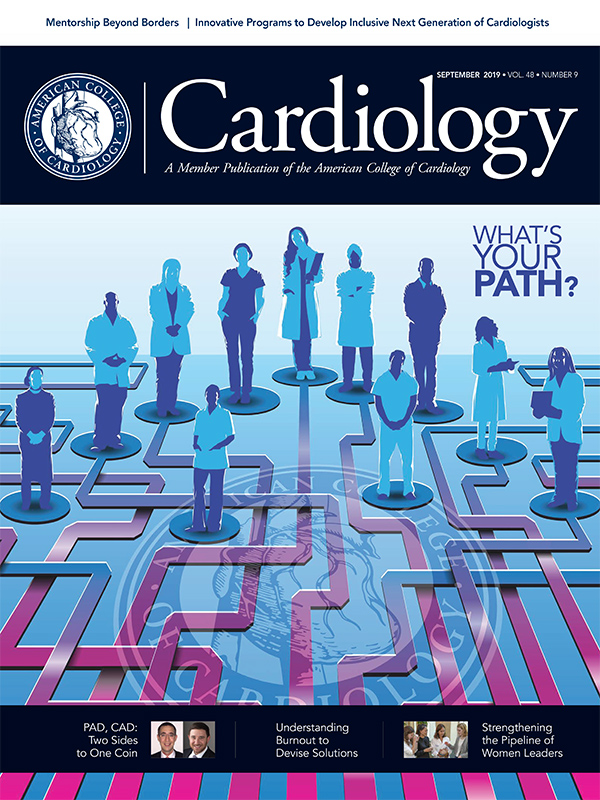Feature | Mentorship Beyond Borders: A Success Story

Thanks to sheer determination and focus, a California cardiologist's mentoring has helped change a Chinese doctor's sense of self and possibility.
It's one thing to mentor a young doctor in your own hospital. It's quite another to mentor one who lives 6,000 miles away and barely speaks your language. Yet that's just what Dipti Itchhaporia, MD, FACC, associate professor at the University of California, Irvine and Vice President-Elect of the ACC, is doing.
It all started at the Great Wall International Congress of Cardiology in Beijing in 2018, where Itchhaporia gave a talk comparing U.S. and Chinese clinical practice guidelines.
Yan Wang, MD, PhD, a cardiologist at Beijing Hospital, attended as one of three finalists in a national competition. "We were told there would be a gift at the end of the competition," she says. The "gift," it turned out, was a one-on-one, hour-long mentoring session with Itchhaporia. "I asked her so many questions," says Wang, who won the contest. "About the patients I saw, the diagnosis I gave, the research I am doing."
"Yan had a lot of thoughts but wasn't very clear on what she wanted to do," Itchhaporia remembers. So she asked her mentee an important question: "What is your long-term goal?" The question resonated with Wang, who became tearful and took it to heart. "She then spent a lot of time thinking about it," says Itchhaporia. But it didn't end there. That first meeting turned into a year of WeChats, emails and phone calls between Itchhaporia and Wang.
Mentoring on an international level provides a window into the difference a culture makes in the practice of medicine, Itchhaporia notes. However, many of the issues are the same as those she encounters when she mentors fellows here in the U.S.
"Some of the same personal issues, professional issues and work/life balance issues. It's interesting for me because it was so similar." Plus, she adds, "It's a nice feeling to connect with your colleagues across the world."
Being a good mentor means listening and helping the mentee clarify what they need, she explains. "The ones who are most open to it will take that back with them and hopefully it helps them focus." In fact, she says, "I don't know that as a mentor you really help them as much as you help them hear themselves."
One challenge with mentoring Wang was the language barrier. "There are times she wants to express something but isn't sure how to say it," Itchhaporia sys. In addition, "I'm not as familiar with the Chinese medical system, so some of the advice I give may not be applicable."
That doesn't bother Wang. "Dipti is such a mentor in my heart," she shares. "She will show me the way forward, encourage me to continue to progress when I am tired, encourage me when I am doing well, and remind me when I deviate from the track. So, the distance does not affect her guidance to me that much."
When asked how Itchhaporia has influenced her career path, Wang, who calls Itchhaporia "my beloved tutor," shares an excerpt from her first email to the U.S. cardiologist after their meeting in China:
"You asked me that day, 'Dr. Wang, what kind of person do you want to be tomorrow?' and to strive for this goal, to say no bravely to the requirements that are not conducive to achieving this goal. I remember what you said, to find this answer, to ask your heart... These words have awakened me."
Those words also motivated her to submit an abstract to ACC.19, which was accepted, enabling Wang to travel to the U.S. for the first time.
ACC.19, in New Orleans where she presented her poster, she says, "widened my horizons. Now, I want to go to America for further study for better skills and knowledge." Something that, not surprisingly, her mentor is helping her do as she applies for research fellowships. Even then, however, Itchhaporia is pushing Wang to truly consider what she wants out of a fellowship. "Does she want to come here for the experience or to improve her research?" a particularly important question since Wang is married and has a young daughter.
"Mentoring is really about creating relationships," Itchhaporia says. "And, like any relationship, what you put in is what you get out of it." Mentoring someone in China helps her as much as it does Wang. "I feel like now if I go to China I'm connected to someone and can reach out to her. It's nice to have a window into someone else's world like that."
"ACC understands the value of mentorship," Itchhaporia says. "The ACC mentoring programs make individuals feel like the organization is reachable and they can connect with the leadership. What people need and want are these connections."

Keywords: ACC Publications, Cardiology Magazine, Mentors, Fellowships and Scholarships, Electronic Mail, Leadership, Goals, Work-Life Balance, Motivation, Physicians, Communication Barriers, Research
< Back to Listings


